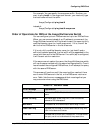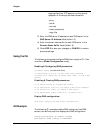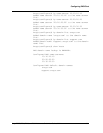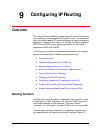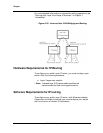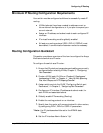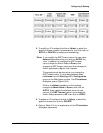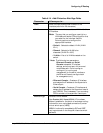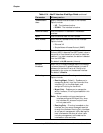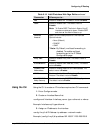
Avaya P550R, P580, P880, and P882 Multiservice Switch User Guide, v5.3.1 9-3
Configuring IP Routing
Minimum IP Routing Configuration Requirements
Your switch must be configured as follows to successfully create IP
routing:
■ VLANs (subnets) have been created to address current or
future network configurations, or if you plan to expand your
current network.
■ Assign an IP address, and subnet mask to each configured IP
interface.
■ IP unicast forwarding must be globally enabled.
■ At least one routing protocol (RIPv1,RIP v2, OSPFv2) must
be enabled, if communication between routers is necessary.
Routing Configuration Quickstart
This section provides an overview of the how to configure the Avaya
Multiservice switch as a IP router.
To configure the switch as a IP router:
1. Ensure that Physical port parameters and cabling are correctly
configured before creating VLANs, Chapter 5, “Configuring
Port Parameters”.
2. Create a VLAN (each VLAN is an IP subnet)“Creating and
Implementing VLANs,” in Chapter 4, “Using VLANs, Spanning
Tree, Hunt Groups, and VTP Snooping Overview”
3. Assign switch ports to the VLAN.”Configuring Switch port
Parameters”, in Chapter 5, “Configuring Port Parameters”.
4. Configure an IP interface, IP address and subnet mask, for
each VLAN and associated subnet.
5. Globally enable IP Forwarding (Routing)
6. Enable the routing protocol on an interface
7. Specify how the router will communicate with other routers,
by configuring RIPv1, RIPv2 or OSPF v2 parameters.
* Note: the IP interfaces should be set to the ADMIN state
“Down”
8. Set the IP interface Admin State to “Up”



